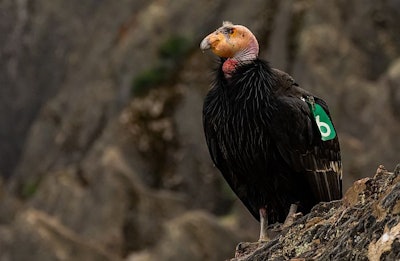
The United States Department of Agriculture (USDA) Animal and Plant Health Inspection Service (APHIS) has approved the emergency use of a highly pathogenic avian influenza (HPAI) vaccine to protect the California condor population.
The vaccination program is limited to protecting the condors, which APHIS describes as “critically endangered,” and will not involve commercial or backyard poultry.
APHIS decided to take the emergency action after having been approached by the U.S. Fish and Wildlife Service (USFWS) California condor was found dead in late March and then confirmed positive for HPAI at APHIS’ National Veterinary Services Laboratories. Since then, 20 more condors have died. Another four are recovering at a rehabilitation center. Of these condors, 15 have been confirmed with HPAI, including two of the four in recovery, according to a press release from APHIS.
The authorized vaccine is a killed, inactivated product conditionally licensed by APHIS’ Center for Veterinary Biologics in 2016. Since the vaccine has not previously been tested against this strain of the virus in these species, the first step in the vaccination program is a pilot safety study in North American vultures, a similar species, to investigate if there are any adverse effects before giving the vaccine to the endangered condors. This trial is funded by the U.S Fish and Wildlife Service and will be carried out with the surrogate vultures in North Carolina beginning in May 2023.
APHIS grants emergency use approvals, which exempt products from one or more regulatory requirements normally applied to licensed vaccines, to prevent, control, or eradicate animal diseases in connection with an official USDA program and/or an emergency animal disease situation. APHIS approved this emergency vaccination of the condors because these birds are critically endangered, closely monitored, and their population is very small (less than 600), which allows close monitoring of the vaccine to ensure it is administered only to the approved population.
Vaccination of condors shouldn’t impact poultry trade
Vultures and California condors are wild birds, not poultry as defined by the World Organization of Animal Health (WOAH). Because of that, APHIS does not expect their vaccination to result in impacts to poultry trade.
USDA Agricultural Research Service (ARS) scientists continue to research vaccine options that could protect U.S. poultry from HPAI, should vaccination be necessary for additional birds in the United States.
View our continuing coverage of the global avian influenza situation.
















